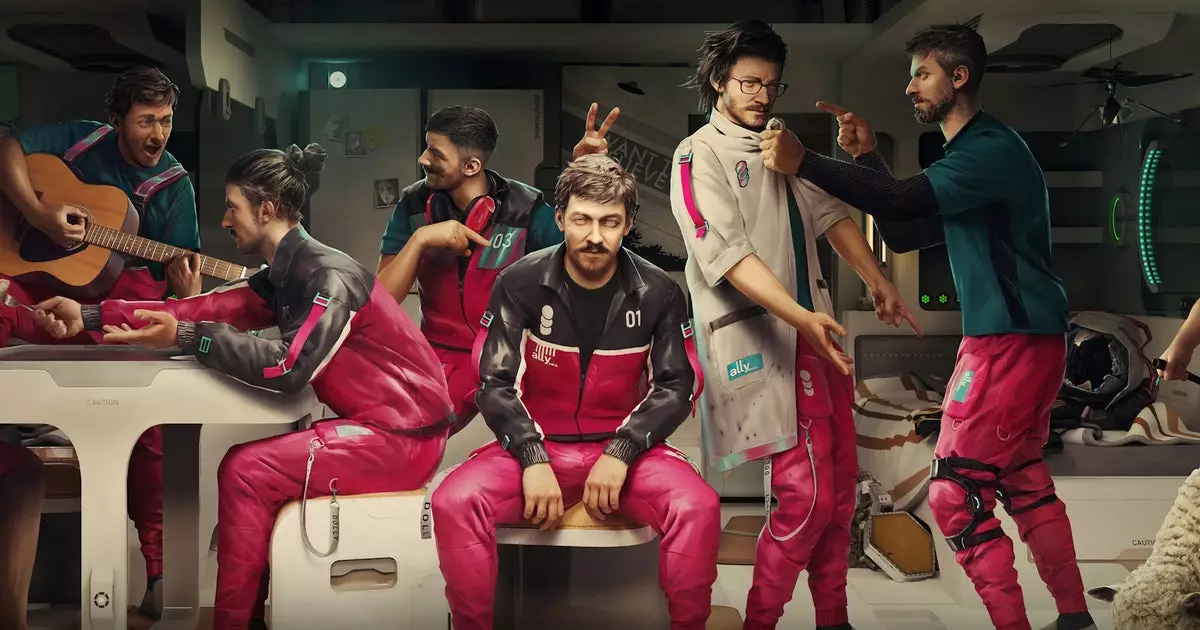The integration of generative AI technologies into creative industries has been a double-edged sword: offering unparalleled efficiencies while raising ethical and transparency questions. The recent disclosure by 11 Bit Studios regarding their use of AI in their game *The Alters* highlights how AI adoption in game development is still a delicate balancing act. The developers’ candid admission offers a valuable case study in the complexities surrounding AI implementation, especially when it comes to communication with players.
Behind the Scenes: AI’s Limited but Impactful Role
11 Bit Studios revealed that AI-generated content was primarily used for two purposes in *The Alters*: translation/localization and provisional graphical assets. Specifically, a tiny fraction—about 0.3%—of the game’s dialogue, roughly 10,000 words, was localized using AI tools as a stopgap to meet tight deadlines. Additionally, AI-created placeholder text was inadvertently left within a background texture. While the AI’s footprint is quantitatively minimal in the grand scope of the game’s 3.4 million words, the qualitative impact guides the heart of the conversation.
Here lies a crucial point: impact cannot be measured solely in statistics. Even seemingly insignificant AI use can ripple across player trust and expectations. Placeholder art accidentally preserved in the final product illustrates the fallibility of rapid AI integration without rigorous oversight. These small lapses underline the importance of thorough quality control when leveraging technology that can blur the lines between handcrafted and machine-generated content.
The Transparency Dilemma: Why Disclosure Matters
The core critique is not centered on the use of AI itself but the decision to withhold information until after release. Valve’s policies require explicit disclosure of AI involvement on Steam, yet *The Alters* launched without acknowledging such integration. 11 Bit Studios’ post-release transparency is commendable, but transparency from the outset is critical.
Gamers are increasingly invested not just in the final product but in the narrative of its creation. Knowing whether content is AI-assisted or human-crafted can influence player perception and the value they assign to the artistic efforts. The delayed admission—framed as an “oversight”—risks eroding trust more than the limited AI use might have. This incident reflects a broader hesitation within the industry to openly confront how AI reshapes creative workflows.
Efficiency Versus Authenticity: A Complex Trade-Off
The developers argue that the alternative to AI-assisted translation would have been to release the in-game dialogue exclusively in English, potentially alienating non-English-speaking audiences. This rationale acknowledges a genuine practical challenge: localization is resource-heavy and time-sensitive. AI does provide valuable support in crunch times.
Nevertheless, this trade-off reveals tensions between efficiency, authenticity, and ethical transparency. It’s telling that 11 Bit intends to eventually replace AI-translations with professional ones, implicitly recognizing that AI is not yet a fully acceptable substitute for human nuance in storytelling. The decision to use AI as an interim solution under time pressure seems pragmatic; what is less justifiable is the failure to inform the audience promptly.
Looking Ahead: Building Trust in an AI-Enhanced Industry
The *The Alters* episode is symptomatic of a transitional phase in game development culture: one where AI tools are welcomed as assistants but provoke uncertainty about boundaries and ownership. 11 Bit Studios’ experience offers a constructive lesson. AI can be a powerful ally—accelerating workflows, filling gaps, and supporting localization—but it demands clear communication, robust quality control, and respect for consumer expectations.
By embracing transparency and fostering dialogue about AI’s role, studios can maintain trust and celebrate technological advancement without compromising artistic integrity. In an era where AI is becoming ubiquitous, an honest reckoning about its place in creative processes is not only necessary but overdue.

